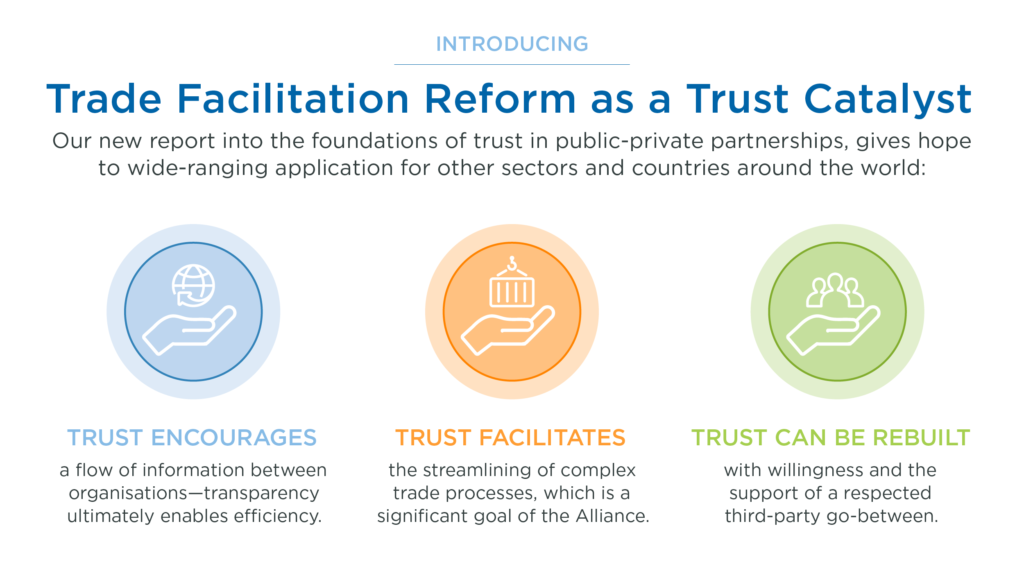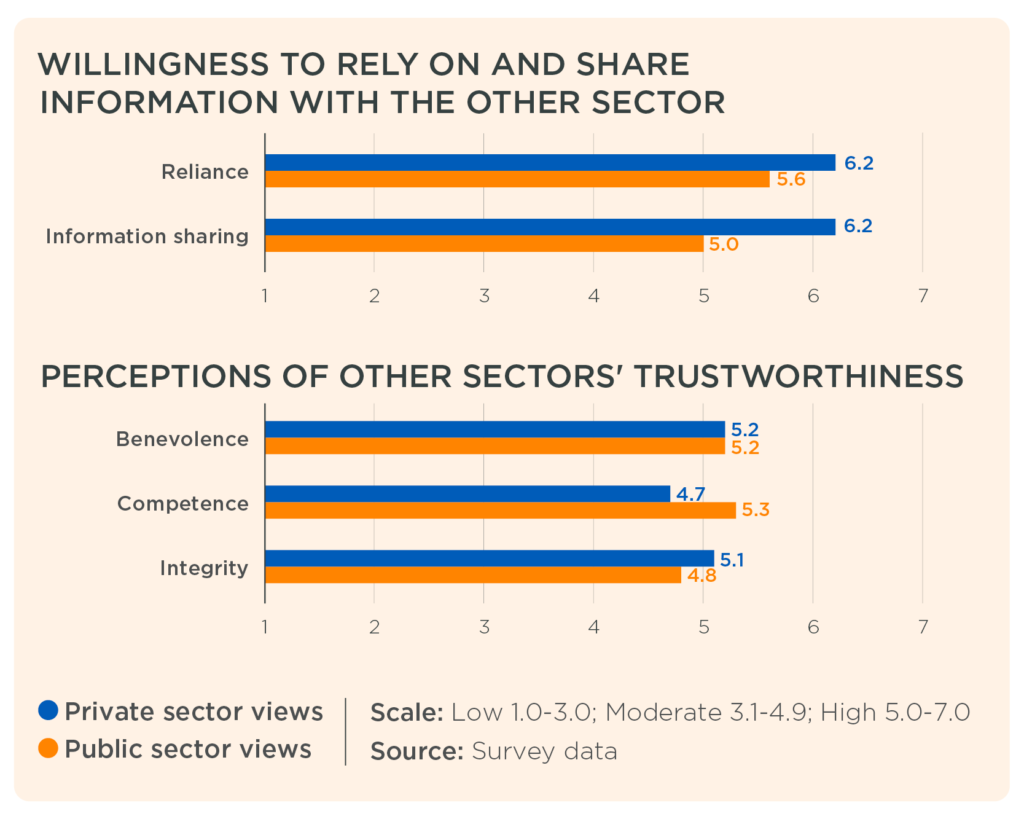
The major study, Trade Facilitation Reform as a Trust Catalyst, examined relations between private sector stakeholders in the Colombian automotive industry and Customs, measuring transformative cooperation between the two. The results have promise for applicability outside of the trade space, showing that trust and reform across a variety of areas – from economic development to environmental regulation – can work hand in hand to increase public-private cooperation.
In just a short time, trust between the two groups was found to have increased across the board, with more than two thirds (67%) of both private and public sector stakeholders reporting a growth in the sentiment. According to respondents, communication improved, with both parties having a better grasp of each other’s needs and interests. Perceptions of benevolence, competence, and integrity – key drivers of trust – also improved.

The study found that four success factors, including the presence of a well-respected project leader, were crucial in helping drive improved relations between the public and private sectors. The Alliance is using this information to further strengthen relationships in Colombia and in other sectors and countries around the world.
“Our work in Colombia not only shows the importance of trust to global trade, but that delicate relationships between even the most adversarial partners can be built and repaired with third-party guidance,” said Philippe Isler, Director of the Global Alliance for Trade Facilitation.
